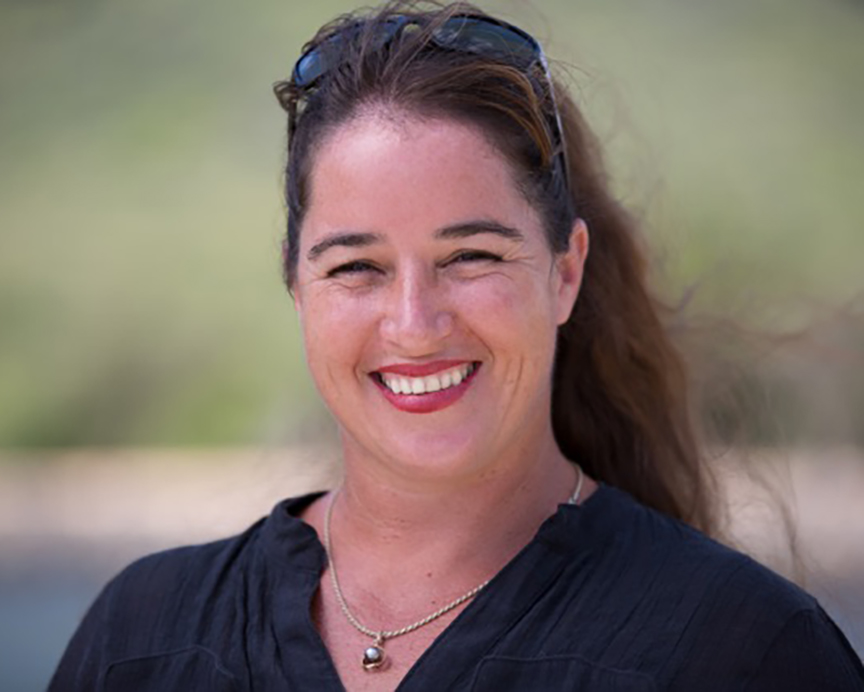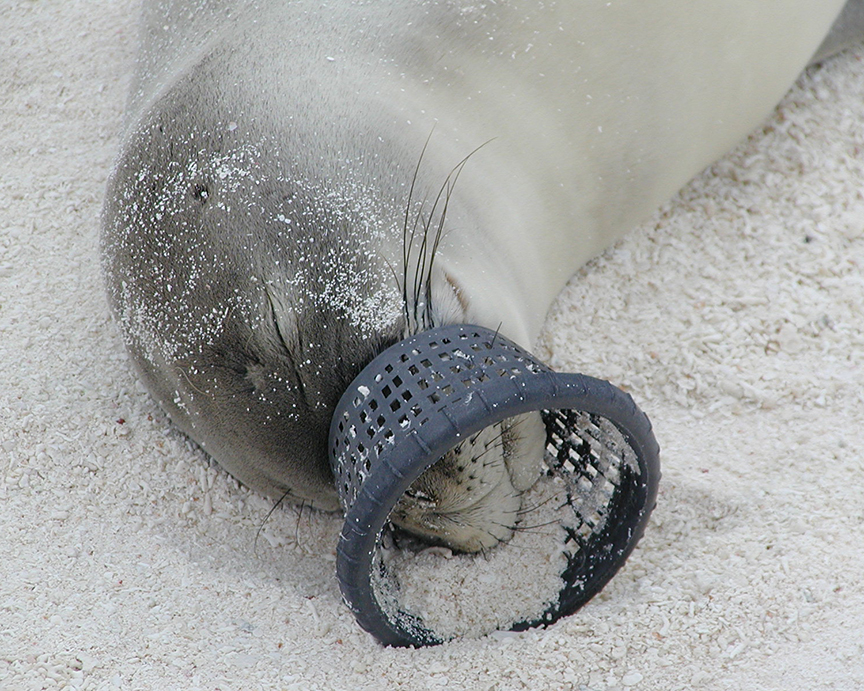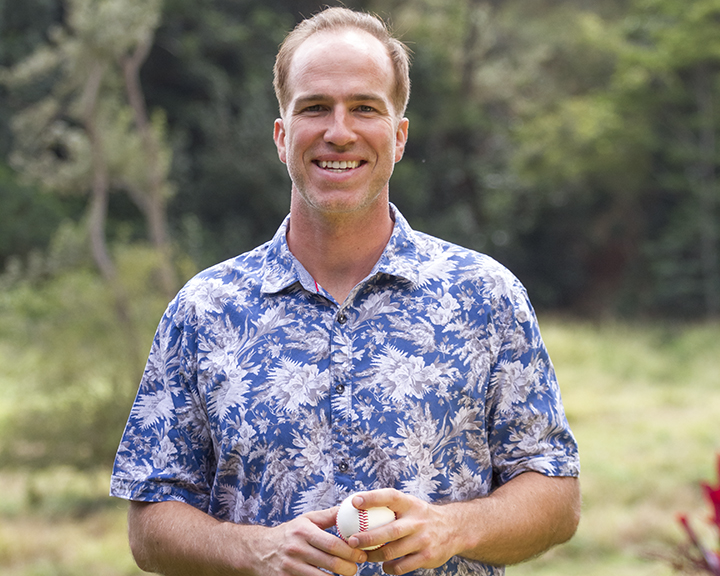By Léo Azambuja

Rising Sun Organic Farms crew, standing, left to right, Eric Pacheco, Elsa Godtfredsen, Nakai Villatora, Fletcher Parker, Maxon Parker, Sol Kahn and Naias Achorn; kneeling, left to right, Annie Geredes, Kai Flint, Sarah Turner and Marco Frascone. Photo by Léo Azambuja
In mid-March, heavy rains drenched Kaua‘i, prompting the county government to issue flash flood and “severe thunderstorm” warnings lasting three days. On the third day, county officials issued a tornado warning — the first ever on the island.
The stormy weather, however, did little to scare a dozen or so young farmers at Rising Sun Organic Farms who were preparing Community-Supported Agriculture boxes to be delivered across Kaua‘i.
“We work with headlamps on, in the pouring rain, in thunderstorms, whatever it takes to get the food out,” said Sol Kahn, owner of RSOF in Moloa‘a.
The real threat wasn’t the weather; it was losing food-security during a time when COVID-19 kept spreading panic and death, collapsing economies and breaking health systems across the globe. The toilet paper hoarding only highlights how easy it is to descend into social chaos — if food were to disappear instead, things would quickly turn very, very ugly.
“This is the most critical time to be a farmer,” said Kahn, referring to the pandemic. “This is why we’ve been doing this for. We’ve been ready.”

Elsa Godtfredsen, left, and Annie Geredes. Contributed photo
Being one of the most geographically isolated places in the world, Kaua‘i is always at risk of losing its food and fuel supply in case of a major global crisis. If that were to happen, the community would turn to local farmers, he said.
“So, this isn’t a small task, this isn’t a small thing for us. This is a huge deal,” Kahn said of being a farmer.
Besides RSOF, several other small farms on Kaua‘i offer Community-Supported Agriculture, or CSA, packages to the community. It is a way for the community to purchase locally grown seasonal produce straight from farmers. Some call it a “farm share,” where community members buy a share into the crops. It’s a win-win situation for farmers and customers; it gives farmers the certainty to sell their produce, while buyers get a rainbow of fruits and vegetables at a reduced cost.
“Essentially, we are putting the priority on getting food out to the community,” said Fletcher Parker, farm manager at RSOF. “We still have to take care of our accounts, but the CSA is that community-asset involvement.”

Farmer Sarah Turner. Contributed photo
Community members also seek CSA packages from local farmers because they know the farmers, according to Kahn, and many of them offer organic produce.
“The people know where they’re getting their food from,” said Kahn, adding all his crops are organic. It’s food you can trust, packed with nutrients. “It’s very clean; a lot of love went into growing it. There are no chemical pesticides.”
Food sustainability has been a hot topic for many years in Hawai‘i. With nearly 90 percent of the local food supply coming from overseas, the scale is heavily tipped toward food vulnerability in the Islands. But in the last few years, there has been an increase in small local farmers across Kaua‘i, according to Kahn. And with COVID-19 threatening to disrupt Kaua‘i’s food supply, local farmers are seeing a boost in demand.
Parker said Mālama Kauaʻi Executive Director Megan Fox is taking a strong lead on supporting local farmers and connecting them with the community. “She’s really taken the bull by the horns and tried to get the word out to people.”
Fox said the main things Mālama Kauaʻi is working on right now include a Local Food Connector webpage, keiki CSA boxes (which had yet to be funded by press time), and a partnership with Hawai‘i Foodbank (with funding from Kaua‘i County) to offer CSA boxes to the kūpuna.

Rising Sun Organic Farms owner Sol Kahn. Photo by Léo Azambuja
“CSAs and programs that support community access, especially for those in need, are especially important right now,” Fox said.
Mālama Kauaʻi is working with a list of 150-plus farmers, she said. The nonprofit’s Local Food Connector webpage (www.malamakauai.org/mk/kauai-food-systems-resources), updated daily, offers an invaluable tool for farmers and the community. Among the resources, there is an extensive list of farms offering CSA boxes, retail outlets selling local produce, farms doing on-site pick-ups and roadside deliveries, local meat producers, food programs, resources available to farmers, etc.
“It’s nice to see so many advancements that have been long-needed in our food system to be supported right now,” Fox said.

Sarah Turner, Marco Frascone and Annie Geredes are seen here working at Rising Sun Organic Farms in Moloa‘a. Contributed photo
Years ago, Moloa‘a was the site for a once lucrative monoculture of papayas, which covered much of the fields now producing a wide variety of crops. Kahn’s farm is about 22-acres, with three acres abounding with an array of vegetable crops. The remaining land is covered with and orchard of 3,000 fruit trees of various assortments — more than 300 mango trees, 150 lychee trees, 200 avocado trees, 100 jackfruit trees and many other fruit trees.
“We have just about everything here,” Kahn said.
RSOF is surrounded by several farms also contributing to the rise of diversified agriculture on the island. Some of those farms include Moloa‘a Organica‘a pumping “amazing produce,” Growing Strong Farms by Dylan Strong, “he’s incredible,” Shree’s farm with “great produce as well,” Kunana Dairy and its “fantastic goat cheese,” and John Wooten’s farm, Kahn said. “There’s a whole list of it.”

Left to right, Rising Sun Organic Farms owner Sol Kahn, left, with Maxon Parker, farm manager Fletcher Parker and Poseidon. Contributed photo
Kahn said it’s always a competition, in the sense that it’s a business, and each farmer is trying to grow the best food possible. But everyone is pretty even as far as quality, and they don’t try to make it a competition because there is a market for everyone.
“You can’t grow enough tomatoes, you can’t grow enough lettuce, you can’t grow enough cucumbers, you can’t grow enough watermelons, you can’t grow enough beets. You have to know how to market it, but there’s enough to go around,” he said.
People need to realize, Kahn said, growing your own food is crucially important. What is happening in the world today, the COVID-19 pandemic, could’ve happened at any moment, he said. “We always knew that, and so we were getting ready for it.”
“We want to feed people, we want to make sure we feed as many people as possible,” said Kahn, adding even if there are people who can’t afford to join the CSA program, he will still provide food for them.

The crew at Rising Sun Organic Farms getting CSA boxes ready in the middle of a storm. Photo by Léo Azambuja
Parker said everyone is coming together in this time of need. They even talked about working with other farmers to move some products. “The fact that this discussion is going on in the community, it’s huge, we’ve got to feed our community,” he said.
For Kahn, this is the time for those who say they love the ‘āina, or land, to get their hands dirty, to put their money where their mouth is.
“Let’s do it. Let’s work. It’s time to grow food, that’s what we’re doing,” Kahn said.
Call Nakai Villatora at 652-3057 at RSOF to inquire about their CSA boxes. See our sidebar to find other farms doing CSA boxes.
Discover more from ForKauaiOnline
Subscribe to get the latest posts sent to your email.















I don’t think the title of your article matches the content lol. Just kidding, mainly because I had some doubts after reading the article. https://accounts.binance.com/it/register?ref=YY80CKRN